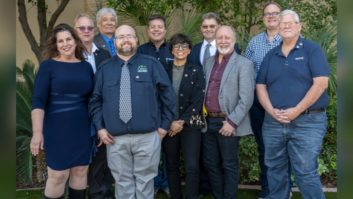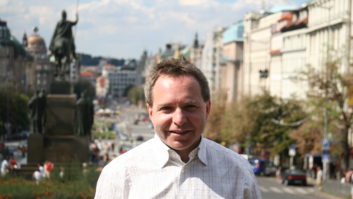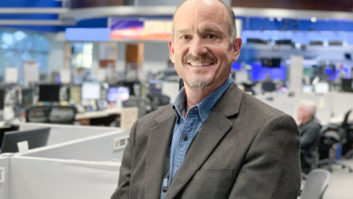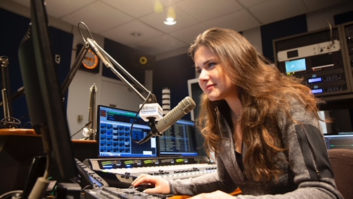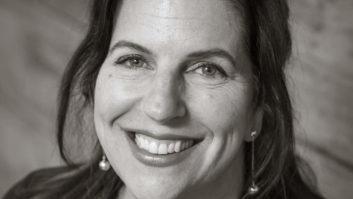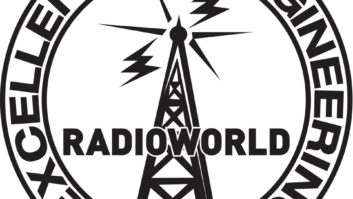Radio has changed much in the nearly 60 years since Martin Ashley began his career, and now at age 75 he’s finally retiring. Over the course of those years he was an engineer, air talent and syndicated disc jockey, frequently concurrently. He also ran a recording studio and served his country for a time in the United States Army.
“When I was 15 years old I walked into a station in Sacramento, KJAY(AM), and asked if I could help them with their wiring,” he said.
“Since fifth grade I had loved electronics, and in high school I took courses in that field and also repaired sound systems and projectors in the audio/visual lab. I never thought about being a disc jockey. But the program director there, Rick Cimino, sat me down and told me that I’d make more money by being on the air than working behind the scenes.”
Ashley decided to pursue both engineering and air work. When he was 17, he started working part-time without pay at KXRQ(FM) Sacramento as a weekend announcer. At about the same time he also narrated an album that was sold as a fundraiser for his high school.
“My first paying job was in 1966, for 92 cents an hour at KXOA(AM/FM) Sacramento, where I did 9 p.m. to midnight on the FM,” said Ashley.
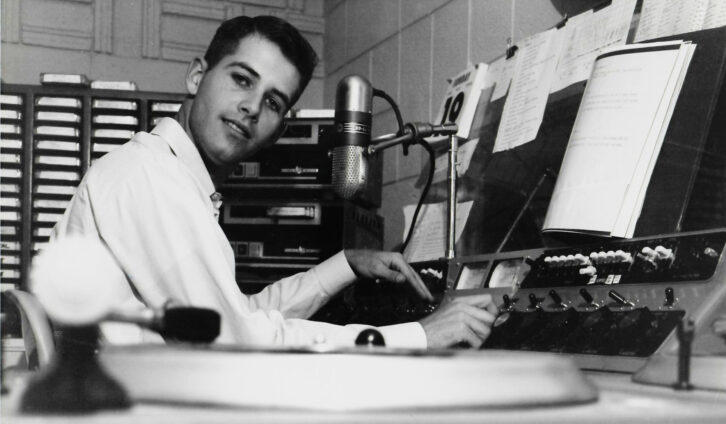
“The station found out I knew about electronics, so the chief engineer asked me to watch the place, as he lived out of town. I performed the Sunday night maintenance under his supervision, I cleaned the cart machines, adjusted the heads on the tape recorders and changed the needles [on the turntable tonearms]. I was an engineer as well as a disc jockey, and if I were to leave, they would need to hire two people instead of one. I made myself as indispensable as I could and I was willing to do anything!”
During his service in the Army he was assigned to the radio/TV section of the Fort Bliss Public Information Office in El Paso, Texas. He worked there for two years in the late ’60s.
“We were tasked with providing a post-wide news phoneline, to supply local El Paso stations with a weekly radio public affairs program of Ft. Bliss activities, interview and distribute interviews with individual soldiers for their hometown radio stations, as well as other audio related projects.”
Wonder Rabbit
At some point Ashley got a nickname that stuck.
“In the late ’60s a fellow jock at KROY (AM) opened his mic and said ‘Wonder Rabbit will be on the air at midnight’ — meaning me! He was referring to the way I had been hopping from task to task around the station.”
Ashley apparently had invented multi-tasking before the term was popular.
“I was interested in everything,” said Ashley. “While I was working at KXOA(AM), I set up a rudimentary recording studio as a side job in a friend’s garage. At that time I was also doing a morning show.
“At my last studio in the ’90s we recorded a lot of Mexican bands and it was like an assembly line,” he continued. “They would drive up in an old Greyhound bus, we’d cut the music tracks, record vocals and mix an album, all in a week. The word spread quickly among the other groups because we were so fast, and because I spoke a little Spanish at the time. We even had an outside salesman who sold jingles we produced all over the country.
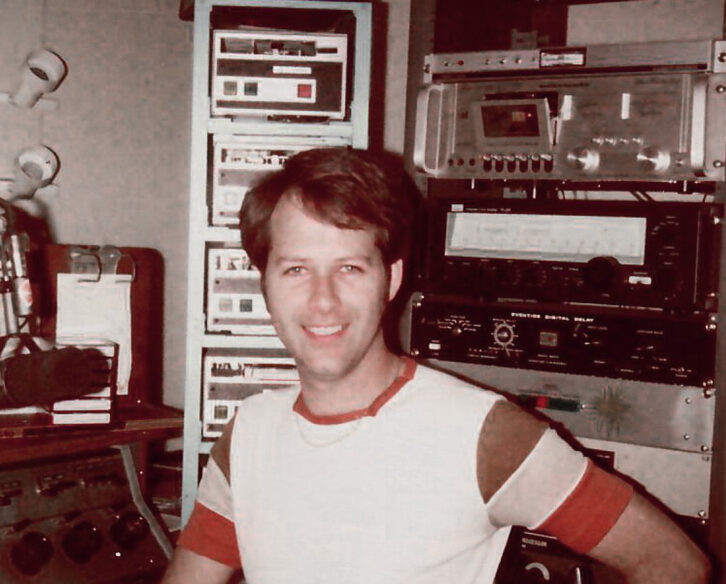
“I recorded a travelog with Andy Griffith. Another big name was LaToya Jackson, who recorded some vocal with us. Actor Dom DeLuise cut some radio commercials. It was a beautiful studio that cost $374,000 to build — and that was in 1980 dollars!”
For 13 years beginning in 1975, Martin Ashley also was part of a team that voice-tracked for a CHR music format owned by syndicator Concept Productions out of Roseville, Calif. It provided around-the-clock programming with disc jockeys and music for stations throughout the country. Here, his moniker “Wonder Rabbit” was shortened to “The Rabbit.”
“We couldn’t say the time or temperature because we were in many markets simultaneously,” Ashley said. “I could say ‘It’s great weather out there, if you like this kind of weather,’ so obviously I couldn’t be too specific. My voice tracks were usually cut between 5 a.m. and 7 a.m., and I would record two weeks at a time.
“This was in the days of automation when the music and voice tracks were on these big 10-1/2-inch reels that would be sent to subscriber stations.”
Ashley’s voice also was familiar to many viewers of public television. He was the station announcer for PBS affiliate KVIE, Channel 6 in Sacramento for 23 years, and its productions were often fed to other PBS facilities and included his narration.
He has enthusiasms other than radio. He earned his private pilot license and owned a Cessna 150H for more than a decade, during which he flew voluntary medical missions for California’s AirLifeLine, a network of volunteer pilots and airplane owners who fly low-income children and adults to and from specialized medical treatments.
He helped form a World War II B-17 reenactment group. He created a monthly newsletter for another WWII veterans and enthusiasts group called The Grey Eagles, of which he was a co-founder.
After selling his Cessna he purchased a retired Sacramento Fire Department fire engine and spent 11 years refurbishing the pumper for display at schools, parades, museums and other fire department functions. He has also enjoyed refurbishing a 1943 WWII military Jeep and a 1966 Ford Mustang.
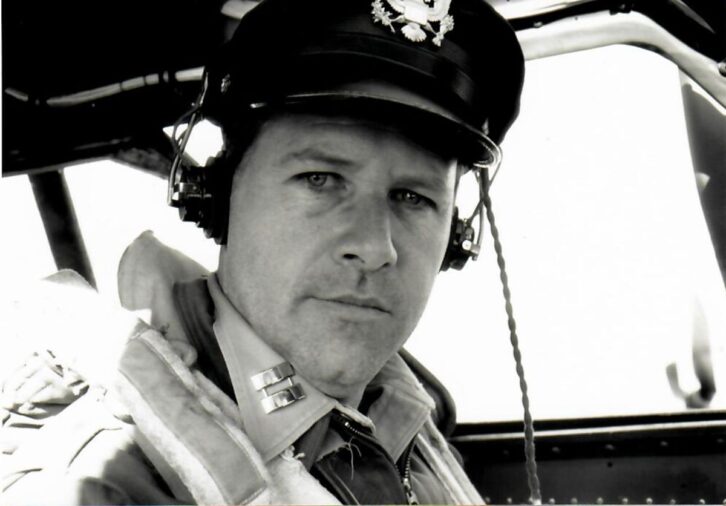
“I’m now officially out of hobbies,” he says.
Radio World asked Ashley about the biggest changes he has seen over his radio career.
“From an engineering standpoint, a lot!” he said. “Every station used to have its own engineer. Now you have a cluster of stations with one engineer. At the last station I worked for as chief engineer, KSFM(FM), also in Sacramento, I had no assistant, I was on call 24 hours a day, seven days a week, 365 days a year. My wife can attest to the fact that I had to miss a lot of holiday dinners because of some station issue. Owners today don’t want to spend any more money than they absolutely have to, and studios have often given way to just a computer in a closet.
“And with respect to air talent, some stations will be moving from live talent to artificial intelligence. The AI voice systems are getting so good that perhaps stations won’t have to have DJs at all, and even more jocks will be out of work.”
And does Ashley have an overall philosophy about working in radio?
“When I first walked into a station for a visit, I knew right then that radio would be my major career,” he said. “As I watched the disc jockey through the window I wanted to be in that studio. I wanted to run the equipment, but I also wanted to talk on the air and play music. I just decided to do whatever management needed so as not to jeopardize my career. If they wanted me to work until 3 a.m. I did that.
“I loved radio and just wanted to be a part of it. I’ve had a good run of nearly 60 years in broadcasting. It’s time for others to take up where I left off.”







